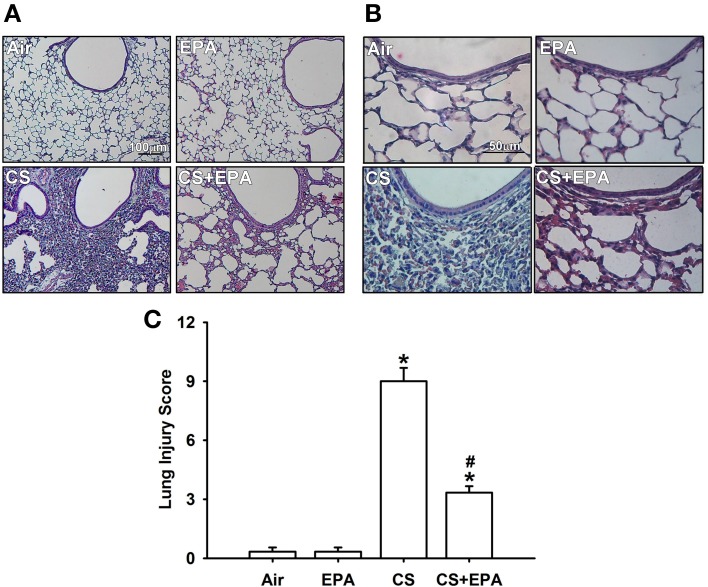Figure 1.
Eicosapentaenoic acid (EPA) attenuates cigarette smoke (CS)-induced lung inflammation in mice. Four groups of mice were subchronically exposed to air or CS for 4 weeks. Two of the four study groups received daily treatment with EPA (50 mg/kg body weight) or vehicle (50% alcohol and 50% DMSO) by gastric gavage during the 4-week exposure. (A,B) Representative images of H&E stained lung sections. The magnifications of each (A,B) are 100X and 400X, respectively. (C) Lung inflammatory scores were calculated according to the sum of the levels of cell infiltration and damage levels as assessed from the lung sections. Data in each group are mean ± s.e.m. from 6 mice. *p < 0.05 vs. the air-exposure group; #p < 0.05 vs. the CS-exposure group with vehicle treatment.

